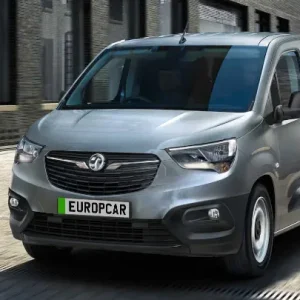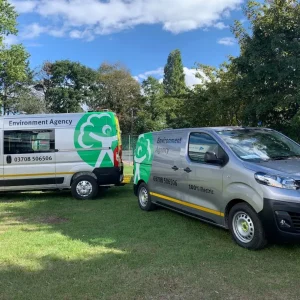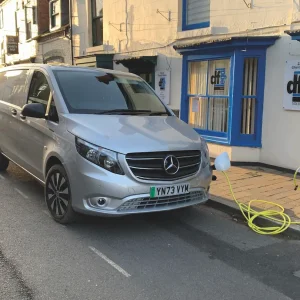In an LCV market that is enjoying something of a sales boom, small vans are the odd ones out.
While the SMMT reported the biggest volume August for LCV registrations for 11 years, small vans were not the flavour of the month – sales of vans weighing less than 2.0t struggled to a disappointing 1380, 5.2% down on the same month in 2015. Over the first eight months of the year the story was even bleaker, with year-on-year sales lagging 11.4% behind on 23,532 units.
It seems manufacturers have failed to convince the urban operators at whom the vehicles are targeted of the benefits of small vans, and they have preferred to stick with larger models. There are now indications that the manufacturers themselves are looking to bail out of the segment.
Both the PSA brands, Citroen and Peugeot, have opted out of implementing the facelift that Fiat Professional has given to its Fiorino – the model that the Citroen Nemo and Peugeot Bipper are based upon. The French manufacturers have, however, taken on Fiat’s 1.3-litre Euro6 Multijet engines for their vans.
The bottom line is financial viability – Citroen and Peugeot feel the baby vans do not deliver sufficient profitability, particularly when it comes to residual values, to make them worthwhile.
Citroen’s UK van boss Jeremy Smith says the Nemo will “run for another couple of years” but the manufacturer is then likely to drop the model from its line-up.
Smith points out the Berlingo light van achieves better residual values than the compact Nemo and admits: “You can contract hire a Berlingo for less than a Nemo.”
Therefore, he says while the Nemo may work for customers as an outright purchase it does not make sense in the leasing market.
Nick Crossley, head of Business Sales at Peugeot, tells a similar tale: “The Bipper absorbed the Euro6 engines but not the facelift,” he says. “The RVs are not enough to invest in the facelift.”
He suggests Peugeot will cover the gap left in its range by the departure of the Bipper by extending its Partner light van portfolio.
The problem both Citroen and Peugeot have is that they are trying to hold their own in a sub-sector that the Ford Transit Courier has dominated since its launch in July 2014. According to Ford, it sold just over 1900 Couriers in the year to the end of August, which is about as many as the PSA brands manage in a full year for their vans. Peugeot claims it sold 1200 Bippers in the year to September, while Citroen’s Nemo was on 890.
But it is an indication of how these small cubed vans have underwhelmed in the marketplace that even the mighty Ford has fallen short of its expectations, the brand having initially forecast 5000 annual sales for the Courier.
Ford had predicted the Courier, which is a more practical load-lugger, would quickly come to outsell the Fiesta van, but in the first eight months of the year it had shifted 2600 examples of the enduringly popular car-derived van – outselling the Courier by 37%.
Nevertheless, Fiat Professional is persisting with the Fiorino, claiming it plays an important role in enabling the brand to offer one of the widest model ranges in the LCV sector – it has recently added the Fullback pick-up truck to its ranks. The refreshed Fiorino has a new interior and some modest external tweaks, including a re-modelled front bumper and 15-inch wheel covers.
Its Euro6 engine line-up comprises a 77hp 1.4-litre petrol unit and a pair of 1.3 turbodiesels with outputs of 80hp and 95hp.
The Ecojet versions of the Fiorino’s diesel engines, which employ fuel-saving technologies such as stop/start, a smart alternator, and a variable displacement oil pump, are appearing for the first time on the Euro6 Fiorino.
The 80hp Ecojet achieves a claimed 74.3mpg on the combined cycle with emissions of 100g/km of CO2, a fuel saving of up to 14% compared with the manual transmission without Ecojet.
Elsewhere in the segment, budget Chinese microvan brand DFSK supplemented its range in July with the introduction of its C-series models, consisting of C35 Van, the C35 Crewvan, the C31 Single Cab Dropside and the C32 Double Cab Dropside. All are powered by a Euro6 1.5-litre petrol engine.





